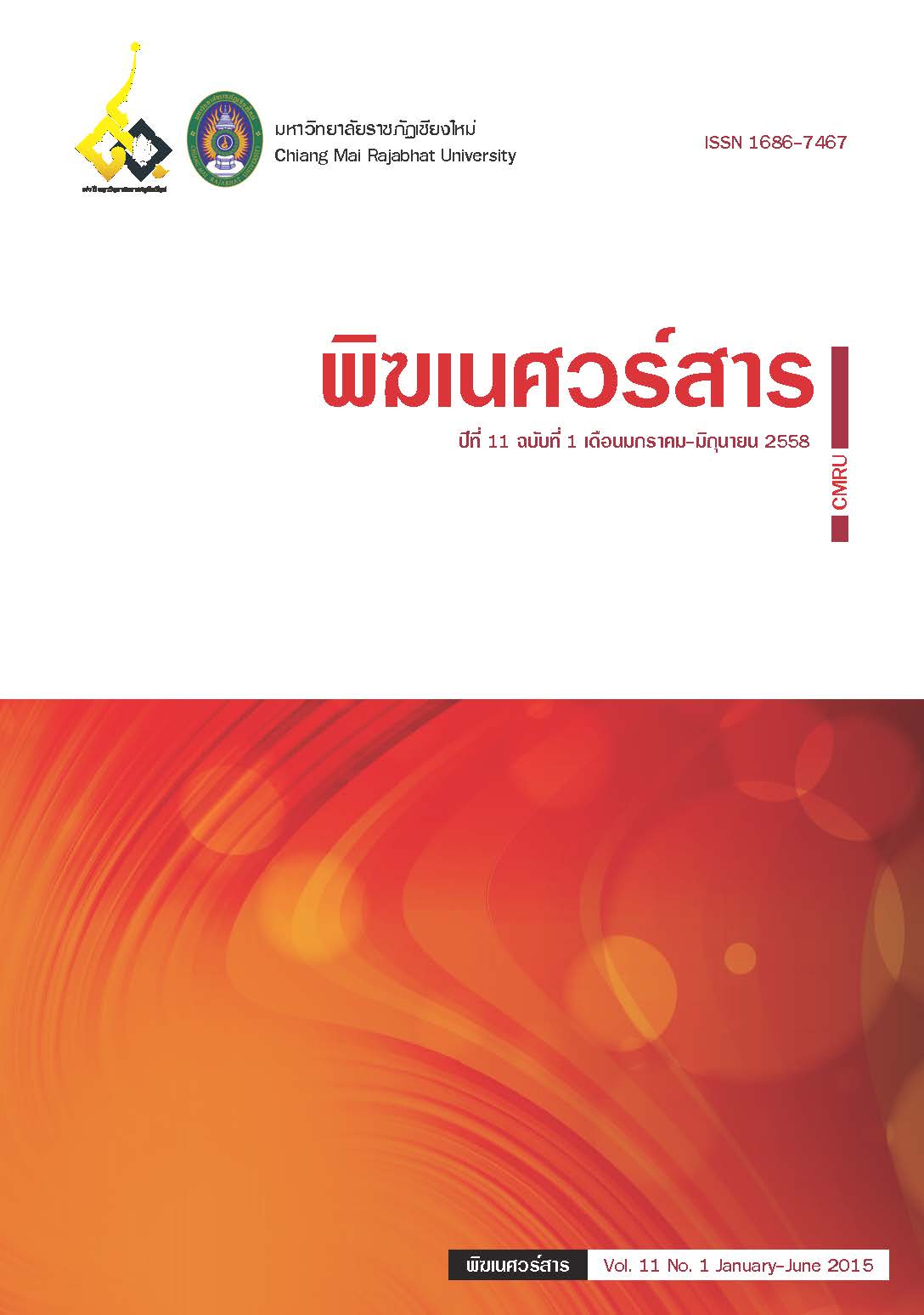ประสิทธิผลของโปรแกรมการพัฒนาพฤติกรรมการเลี้ยงลูกด้วยนมแม่ในหญิงตั้งครรภ์ อำเภอเมือง จังหวัดกระบี่
Main Article Content
Abstract
การวิจัยครั้งนี้เป็นการวิจัยกึ่งทดลอง มีวัตถุประสงค์เพื่อศึกษาประสิทธิผลของโปรแกรมการพัฒนาพฤติกรรมการเลี้ยงลูกด้วยนมแม่ของหญิงตั้งครรภ์จนถึงระยะหลังคลอด เขตอำเภอเมือง จังหวัดกระบี่ กลุ่มตัวอย่างคือหญิงตั้งครรภ์ เลือกกลุ่มตัวอย่างแบบเฉพาะเจาะจง แบ่งเป็นกลุ่มทดลองและกลุ่มเปรียบเทียบกลุ่มละ 30 คนกลุ่มทดลองได้รับโปรแกรมการพัฒนาพฤติกรรมการเลี้ยงลูกด้วยนมแม่ในหญิงตั้งครรภ์ใช้ระยะเวลาประมาณ 16 สัปดาห์ กลุ่มเปรียบเทียบได้รับการดูแลตามปกติ เครื่องมือที่ใช้ในการทดลองคือโปรแกรมการพัฒนาพฤติกรรมการเลี้ยงลูกด้วยนมแม่ในหญิงตั้งครรภ์ เก็บรวบรวมข้อมูลโดยแบบทดสอบ มีการตรวจสอบความตรงตามเนื้อหาโดยผู้ทรงคุณวุฒิ 5 ท่าน ค่าดัชนีความสอดคล้อง .88 นำเครื่องมือไปทดลองใช้กับหญิงตั้งครรภ์ที่มีคุณสมบัติคล้ายคลึงกับกลุ่มตัวอย่าง จำนวน 30 คน หาค่าความเที่ยงของแบบทดสอบความรู้ ได้ค่า KR-20 เท่ากับ 0.80 แบบประเมินทัศนคติได้ค่าสัมประสทธิ์แอลฟาของครอนบาค ได้เท่ากับ .71 และแบบประเมินพฤติกรรมการเลี้ยงลูกด้วยนมแม่ค่าสัมประสทธิ์แอลฟาของครอนบาค เท่ากับ .72 วิเคราะห์ข้อมูลโดยใช้ ค่าร้อยละ ค่าเฉลี่ย ส่วนเบี่ยงเบนมาตรฐานและ Independent t-test
ผลการศึกษาพบว่าหญิงตั้งครรภ์ที่ได้รับโปรแกรมการพัฒนาพฤติกรรมการเลี้ยงลูกด้วยนมแม่ในหญิงตั้งครรภ์มีความรู้ ทัศนคติ และพฤติกรรมการเลี้ยงลูกด้วยนมแม่สูงกว่าก่อนใช้โปรแกรมการพัฒนาพฤติกรรมการเลี้ยงลูกด้วยนมแม่ในหญิงตั้งครรภ์อย่างมีนัยสำคัญทางสถิติ ที่ระดับ.05 และหญิงตั้งครรภ์ได้รับการโปรแกรมการพัฒนาพฤติกรรมการลี้ยงลูกด้วยนมแม่ในหญิงตั้งครรภ์ มีค่าเฉลี่ย ความรู้ ทัศนคติ และพฤติกรรมการเลี้ยงลูกด้วยนมแม่สูงกว่ากลุ่มเปรียบเทียบอย่างมีนัยสำคัญทางสถิติ ที่ระดับ.05
THE EFFECTIVENESS OF DEVELOPMENT PROGRAM ON BREASTFEEDING BEHAVIOR OF PREGNANT WOMEN IN MUANG DISTRICT, KRABI PROVINCE
This study was based on the quasi-experimental research. The purpose of the study: first, to compare the Knowledge, Attitude, and Behavior (K.A.B.) of the pregnant women of Muang district, Krabi province. before and after they participated in the development program on breastfeeding behavior; second, to compare the K.A.B. of the control and experimental group. Purposive sampling was used to select the participants. The total number of the participants was 60 pregnant women and was divided equally into to two groups, control and experimental. The program was developed from the Socio-Cognitive Theory and Social Support Theory. The researcher developed 3 questionnaires to test the Knowledge, Attitude, and Behavior of pregnant women to breastfeeding. The test for Knowledge has 0.80 reliability calculated using Kuder-Richardson Formula 20 while the Cronbach’s alpha was used for the questionnaires of Attitude and Behavior and they had a reliability of 0.71 and 0.72, respectively. The data was analyzed using percentage, mean, standard deviation and independent t-test. The results were to:
1. The pregnant women under the experimental group had higher K.A.B. after participating compared to their K.A.B. before the program. (p <0.05)
2. The pregnant women’s K.A.B. under the experimental group was significantly higher compared to the control group. (p <0.05)
Downloads
Article Details
The articles published are copyrighted by the Graduate School, Chiang Mai Rajabhat University.
The opinions expressed in each article of this academic journal are solely those of the individual authors and do not reflect the views of Chiang Mai Rajabhat University or its faculty members. The responsibility for the content of each article rests entirely with the respective authors. In the event of any errors, the authors alone are responsible for their own articles.


